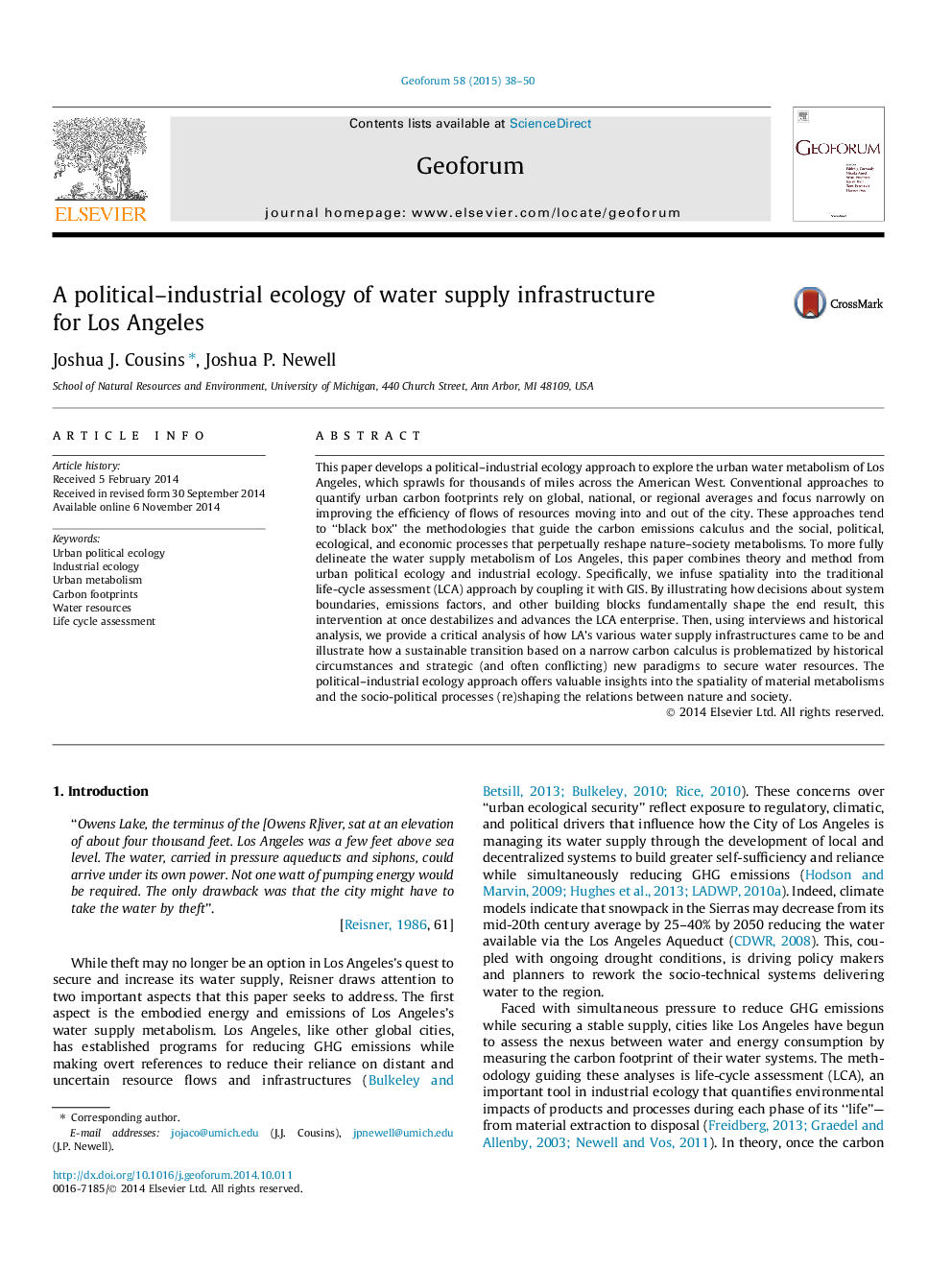| کد مقاله | کد نشریه | سال انتشار | مقاله انگلیسی | نسخه تمام متن |
|---|---|---|---|---|
| 5073849 | 1477131 | 2015 | 13 صفحه PDF | دانلود رایگان |
- A political-industrial ecology approach is developed to explore LA's water metabolism.
- It opens the black box of carbon footprinting to reveal spatiality and politics.
- A spatially-explicit LCA is used to model the water supply metabolism.
- The water sourcing and conveying lifecycle phases have the largest carbon footprint.
- Planning contradictions arise between maintaining low emissions and reliable water supply.
This paper develops a political-industrial ecology approach to explore the urban water metabolism of Los Angeles, which sprawls for thousands of miles across the American West. Conventional approaches to quantify urban carbon footprints rely on global, national, or regional averages and focus narrowly on improving the efficiency of flows of resources moving into and out of the city. These approaches tend to “black box” the methodologies that guide the carbon emissions calculus and the social, political, ecological, and economic processes that perpetually reshape nature-society metabolisms. To more fully delineate the water supply metabolism of Los Angeles, this paper combines theory and method from urban political ecology and industrial ecology. Specifically, we infuse spatiality into the traditional life-cycle assessment (LCA) approach by coupling it with GIS. By illustrating how decisions about system boundaries, emissions factors, and other building blocks fundamentally shape the end result, this intervention at once destabilizes and advances the LCA enterprise. Then, using interviews and historical analysis, we provide a critical analysis of how LA's various water supply infrastructures came to be and illustrate how a sustainable transition based on a narrow carbon calculus is problematized by historical circumstances and strategic (and often conflicting) new paradigms to secure water resources. The political-industrial ecology approach offers valuable insights into the spatiality of material metabolisms and the socio-political processes (re)shaping the relations between nature and society.
Journal: Geoforum - Volume 58, January 2015, Pages 38-50
